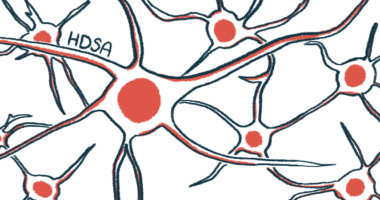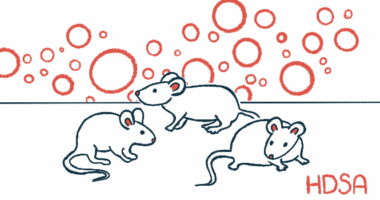Board OKs AMT-130 Gene Therapy Trial to Enroll for High-dose Group

A Phase 1/2 trial testing the safety and efficacy of AMT-130, uniQure’s experimental gene therapy for Huntington’s disease, can continue dosing after a positive recommendation from an independent board.
The data safety monitoring board, which is overseeing the trial, reviewed safety data from the first group of 10 patients enrolled in the low-dose group (including those treated with placebo). The data spanned nine months (for two patients), six months (two patients), and 30 days (six patients).
The proof-of-concept study is allowed to continue dosing in the higher-dose group, and uniQure is currently enrolling participants, ages 25 to 65, at all nine clinical sites in the U.S.
“We are very pleased with the progress of the study and with the recommendations of the [board],” Ricardo Dolmetsch, PhD, president of research and development at uniQure, said in a press release. “We look forward to proceeding with dose-escalation in the second cohort of patients.”
AMT-130 is a gene therapy designed to lower the production of the mutated form of the huntingtin protein, the underlying cause of Huntington’s disease.
The therapy is inserted into cells using as a vehicle an adeno-associated virus, which has been modified to be harmless.
The gene therapy delivers a small portion of lab-made genetic material — called microRNA — that targets the RNA molecule carrying the instructions to produce the mutated form of huntingtin protein, triggering its degradation. In this way, it is thought to lower the production of abnormal huntingtin protein.
The five-year Phase 1/2 trial (NCT04120493) is assessing the gene therapy’s safety, tolerability, and efficacy against a sham procedure in 26 people with early stage Huntington’s disease.
The study consists of a blinded 12-month core study period followed by an unblinded follow-up period of up to five years.
After enrollment was completed for the first group in May, 10 patients were randomly assigned to a low dose of AMT-130 (six patients) or to an imitation (sham) surgery (four patients).
Now, the trial seeks to enroll 16 patients who will be assigned randomly to a high dose of AMT-130 or to the sham surgery.
AMT-130 is administered as a single dose directly into the striatum — the area of the brain responsible for movement control — using a surgical procedure known as MRI-guided convection-enhanced delivery.
A new open-label clinical study of AMT-130 in Europe is expected to start later this year. The study is seeking to enroll 15 patients with early Huntington’s disease, and will include two dose groups.
The results from the studies in Europe and in the U.S. will help uniQure to determine the safety and optimal dose of the gene therapy to move into Phase 3 development, or to a confirmatory trial, should AMT-130 earn accelerated approval by regulators.
“We remain highly focused on progressing this therapy given the significant unmet need in the Huntington’s disease community and are committed to initiating clinical development of AMT-130 in Europe in the second half of this year and to sharing initial imaging and biomarker data from the U.S. clinical trial before the end of the year,” said Dolmetsch.






